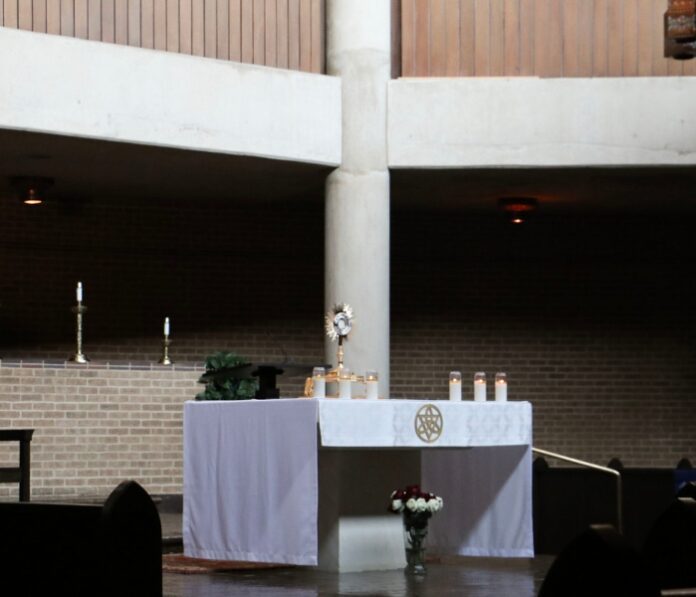
Disclaimer: All articles published under this section are the opinions of the respective authors and do not necessarily reflect the opinions of The Cor Chronicle.
In the commentary article published in The Cor Chronicle on September 18, 2024, “You have a Vocation to the Priesthood,” Joseph Michel asked the student body to consider becoming a liturgical minister. While I agree that people ought to be more open to becoming an altar server, sacristan or lector, I disagree with Joseph that the Church of the Incarnation needs more Eucharistic ministers.
Joseph wrote that being a minister is “the greatest responsibility and the greatest gift of all these vocations [to liturgical ministry]. Many seem afraid of the position because they feel deeply the tremendous responsibility of distributing communion.”
To some degree this is true. As stated in the Vatican Document “Immensae Caritatis,” we Catholics profess that the Eucharist is the “supreme effectiveness for the transformation of the world in justice, holiness and peace,” and deserves the utmost respect, reverence and worship. However, it seems bold to assume that the lack of Eucharistic ministers is because people fear the responsibility.
Written in 1978 in order to lessen the regular usage of Eucharistic ministers, “Immensae Caritatis” states: “To give the Eucharist to God’s people remains in general therefore an honored pastoral function. Extraordinary ministers are envisioned…where there is a genuine lack of ministers.”
The United States Conference of Bishops also states that only when the size of the congregation requires it, may the priest call “duly instituted acolytes or even other faithful who have been deputed for this purpose.”
Yet Pope Paul VI and the USCCB both write in a vague manner, leaving an unnecessary amount of interpretation and debate up to the reader. For example, I know many people will say that if we didn’t have extra Eucharistic ministers at the 12:05 daily Mass, then many students would no longer be able to attend. To this I have two remarks.
First, the divine liturgy ought not to conform to the schedules of those attending. The Eucharist is the source and summit of the Christian life, and it is unfortunate that so many earnest Catholics seem to lose sight of this fact. It would be better that we only receive Christ on Sundays with a true loving devotion than if we were to receive him seven days a week out of habit.
Furthermore, if trying to pump out a quick Mass is of utter necessity, then we ought to start with portions of the Mass that are less important than the distribution of Holy Communion.The reason we go to Mass is to enrich our intimate union with Jesus Christ. Thus, which seems more beneficial: spending 15 minutes listening to a homily about Jesus and five with Jesus, or five minutes listening and 15 with Him who gave up His place with God so that He may be united to us in our nothingness?
I am not condemning the usage of Eucharistic ministers altogether. I just believe that the practice itself should be reformed. Let us not stray away from the Church’s original design for these ministers.
Since I do not believe my humble article will change the course of Eucharistic distribution at the University of Dallas, I at least hope it raises awareness for how ministers may, in the words of the USCCB, “show the greatest reverence for the Most Holy Eucharist by their demeanor, attire, and manner.”
For example, at 11 a.m. Sunday Mass there are multiple Dominican friars who I believe would be much better suited as Eucharistic ministers than lay men or women. Why wouldn’t they? They have chosen to more closely follow Chist’s call through their demeanor, attire, and manner.
I hope this article makes one question the true risks and rewards of regular lay Eucharistic ministers. As a young altar server, I remember being filled with such a sense of awe as I would watch my priest, a physically unhealthy man, truly suffer as he spent 20 to 30 minutes distributing communion to a full parish by himself.
As a Maronite Catholic, the practice of lay Eucharistic ministers is one that is extremely rare and stands in stark contrast to my local parish, which has four Eucharistic ministers fly through the communicants. Thus, let us reconsider who ought to regularly distribute our one true God.
Sharbel Habchy is a senior computer science major. He is an altar server at the Church of the Incarnation and runs Mission Youth at the University of Dallas.